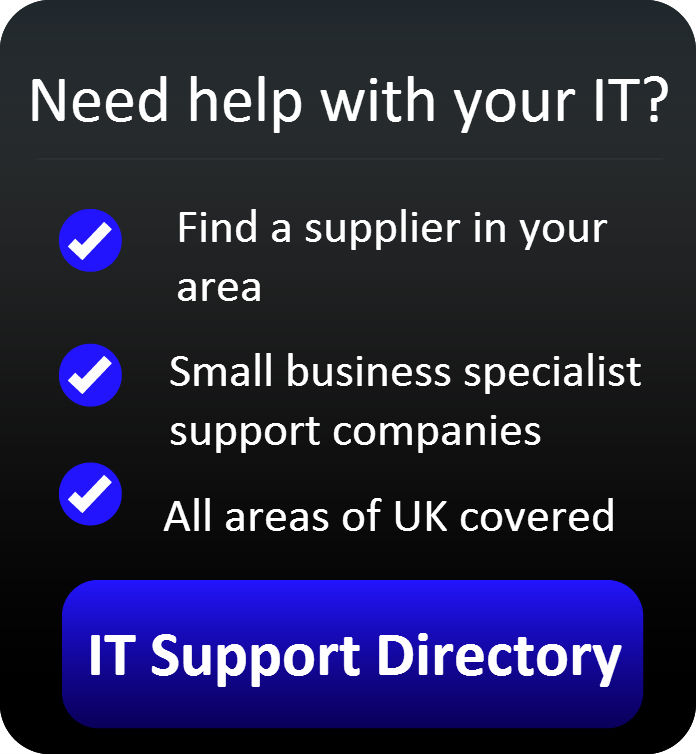Remote access to your network
 Giving people in your company remote access to their email, company files and other systems - no matter where they are - allows them to work more efficiently and flexibly
Giving people in your company remote access to their email, company files and other systems - no matter where they are - allows them to work more efficiently and flexibly
What's more, remote access can be surprisingly easy (and cheap!) to set up.
What is remote access?
Remote access means allowing people to access your business computer systems even when not directly connected to your company network. For instance:
- Allowing staff to log in to your customer database from home.
- Setting up a project workspace where clients can share and view files.
- Allowing employees to send and receive email from any computer.
Remote access makes it easier for people to work effectively when away from your premises. For instance, if you allow remote access to your main systems, staff working from home are less likely to interrupt people in the office to ask them to send files over.
Similarly, if you have salespeople on the road, they can download the latest pricing information before an important meeting.
Decide what you want to use remote access for before determining which method of access to offer. And remember: remote access isn't limited to laptops. These days, mobile phones and tablet computers are so powerful you can run your entire business from them.
Remote access without a server
Traditionally, you needed a network server to control permission levels and effectively allow remote access in your business.
However, these days cloud computing services provide one of the easiest routes to remote access.
For example, you could use an online collaboration system to share files. And an email service - such as that included with Office 365 - allows your staff to access their email from any location.
These online services are becoming increasingly popular, particularly for smaller businesses that are unable to justify investing in their own server.
Tools like Dropbox and Box are excellent ways to store files online, where authorised people in your business can view them.
Cloud computing services are generally very well-suited to being accessed from anywhere. Indeed, if your business ranks mobile working as a high priority, it's worth consulting your IT supplier to understand how cloud services can help.
You can also make use of remote desktop connection software. This works like a remote control for your main computer, so you can log in to it over the internet and access your usual programs, files and settings.
Some versions of Microsoft Windows come with Windows Remote Desktop as standard. The latest version, Windows 10, allows you to connect to your main office computer from a tablet computer, so you can use all your usual software.
Remote access to email and files
The simplest types of remote access open up specific, isolated parts of your systems:
- Email. Implementing remote access to email is usually straightforward. Many email systems include a web interface so you can check email by visiting a specific website address (a bit like using Hotmail or Gmail).
- External file sharing. If you need to offer access to files stored on your systems, you can open up certain areas so anyone can log in and download files. This is also called an extranet.
If your business is largely based in a single location and your staff tend not to work while they're out and about, these options are good for occasional use.
A remote connection to all your systems
If you have a server in your business, a more secure way to provide remote access to company systems is with a virtual private network (VPN). A VPN creates a secure link between your network and your employee's computer across the internet.
All the information sent between the two is scrambled, so nobody can intercept it. You can access all the resources on your company network just as if you were in the office.
Setting up a secure VPN can be a complicated task that requires extra hardware and software. Because a VPN allows wide access to your company systems, you need to take adequate security precautions too.
Indeed, because allowing any level of remote access increases the security risk to your business, it's important you evaluate the potential threats and take steps to keep your data safe.





Comments
Add a comment
Not registered? We'll create a new account for you when you add your comment